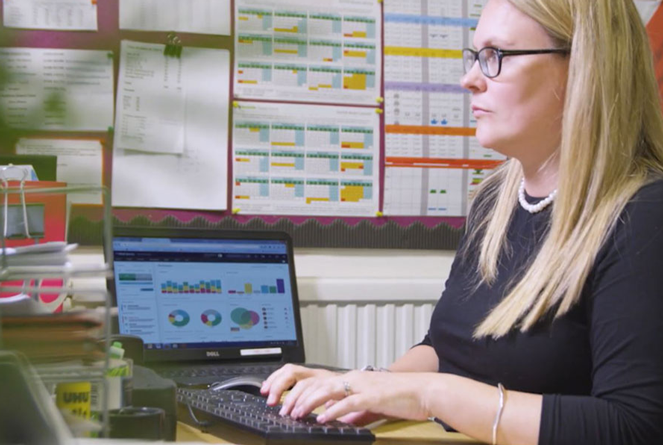Introduction
The spotlight has historically been on academic achievements and standardised test scores in the ever-evolving education landscape. Yet, as parents, we increasingly recognise the equal, if not more significant, importance of character education for our children. Observing the development of a child’s character is a profoundly rewarding experience that extends far beyond textbooks and grades.
In this blog, we delve into the significance of character education, exploring the ongoing debate surrounding its implementation in schools, particularly in light of inspections. Firstly, however, let’s look at what character education is.
What is character education?
Character education serves as an umbrella term encompassing various aspects of personal and social development, ranging from moral and civic virtues to promoting positive behaviours, critical thinking, and overall well-being. It plays an important role in shaping children to become socially responsible, empathetic, and ethical members of the community.
The benefits of character education
Building strong foundations
Parents inherently understand that education transcends textbooks and classrooms. Character education forms the bedrock for a child’s development, nurturing qualities like empathy, resilience, and integrity. Studies by the Collaborative for Academic, Social, and Emotional Learning (CASEL) affirm that pupils exposed to character education exhibit improved social and emotional skills, correlating with enhanced academic performance.
Learning emotional intelligence
Character education is pivotal in cultivating emotional intelligence, a trait increasingly recognised as crucial for success in various life aspects. Despite this recognition, some schools hesitate to adopt formal character education programs, citing challenges in assessing and measuring emotional intelligence. Standardised testing, often the evaluation benchmark, must capture these nuanced qualities, creating a gap in the evaluation process.
Preparing for real-world challenges
Life’s challenges extend beyond academic knowledge, and character education equips children with the resilience and adaptability needed to navigate the complexities of the real world. However, the prevailing emphasis on academic achievement in school inspections inadvertently contributes to overseeing character education initiatives. Schools may need more motivation to prioritise these programs, potentially missing opportunities to develop well-rounded individuals.
Promoting empathy and social skills
Parents recognise the importance of raising compassionate and socially adept individuals. However, some schools argue that the emphasis on character education diverts attention from the primary goal of academic excellence. This debate often centres around resource allocation, with limited time and funding leading schools to prioritise academic subjects over character education. The result can be a gap in pupils’ holistic development.
Shaping responsible citizens
Character education is fundamental to shaping responsible citizens, yet the current framework of school inspections tends to focus heavily on academic outcomes. The debate revolves around balancing academic achievements and character education, as both are integral to nurturing responsible citizens.
Challenges in implementation
The debate over character education often revolves around practical challenges schools face—limited resources, time constraints, and the pressure to meet academic benchmarks may lead some institutions to prioritise traditional subjects over character development. Striking this balance becomes delicate, and without adequate support and guidance, schools may find it challenging to incorporate formal character education programs into their curriculum.
Inspection focus on academics
The current framework of school inspections primarily emphasises academic outcomes, inadvertently downplaying the significance of character education. Institutions are often assessed based on standardised test scores and other quantifiable measures, leaving character development in the background. Consequently, schools may be less motivated to invest in character education initiatives, which, while not immediately measurable, are essential for long-term student success.
School initiatives in character education
Despite the challenges, an increasing number of schools are proactively embracing character education, recognising its profound impact on pupils' holistic development. To reinforce positive behaviour and values, some schools employ strategies like positivity and praise, using rewards and recognition platforms for the acquired character skills. These efforts aim to create a supportive environment that encourage ethical growth alongside academic achievement. Schools embrace a variety of strategies, as some seamlessly integrate character development into existing subjects by infusing ethical considerations into daily lessons. Meanwhile, others create specific programs and engaging activities aimed at building students' character, ultimately contributing to the development of a positive and nurturing school culture. These efforts can be effectively communicated directly to parents through engagement tools.
Examples of character education programs
Schools can consider implementing several character education programs and initiatives, with the Building Learning Power (BLP) framework being one notable example. Here are a few:
Building learning power (BLP)
Overview: Developed by educationalist Guy Claxton, BLP is a comprehensive approach to character education that focuses on developing pupils’ learning capabilities and strengths.
Implementation: BLP emphasises the cultivation of four learning dispositions - resilience, resourcefulness, reflectiveness, and reciprocity. Schools can integrate these dispositions into the curriculum, creating opportunities for students to develop problem-solving, collaboration, and self-reflection skills.
Character counts
Overview: Character Counts! is a widely used character education program emphasising the “Six Pillars of Character”: trustworthiness, respect, responsibility, fairness, caring, and citizenship.
Implementation: Schools can incorporate these pillars into various aspects of the school environment, from classroom activities to school policies. The program provides a framework for fostering a positive and ethical school culture.
Positive behavioural interventions and supports (PBIS)
Overview: PBIS is a proactive approach to establishing the behavioural supports needed for a school to be an effective learning environment.
Implementation: PBIS focuses on teaching positive behaviours and expectations, reinforcing them systematically, and addressing behavioural issues through a data-driven approach. This initiative contributes to the development of social and emotional skills in pupils.
Character education partnership (CEP)
Overview: CEP is a national advocate and leader for the character education movement. It provides resources, training, and support to schools aiming to integrate character education into their curricula.
Implementation: Schools can join CEP to access various resources, including lesson plans, training materials, and research on effective character education practices. CEP helps schools tailor character education initiatives to their specific needs.
The positivity project
Overview: This initiative empowers students to build positive relationships by understanding, appreciating, and exemplifying character strengths in themselves and others.
Implementation: Schools can implement the Positivity Project by incorporating its curriculum, which includes weekly lessons and activities centred around 24 character strengths, such as gratitude, curiosity, and teamwork.
Social-emotional learning (SEL) programs
Overview: Various SEL programs, such as CASEL’s SEL framework, teach pupils crucial social and emotional skills that contribute to their character development.
Implementation: SEL programs can be integrated into the curriculum to enhance students’ self-awareness, self-regulation, interpersonal skills, and decision-making abilities. These skills are fundamental to character development. Implementing these programs requires a commitment from school leadership, collaboration among teachers, and active engagement with students and parents. Schools can choose the program that aligns best with their values, goals, and the specific needs of their student body.
Conclusion
While character education holds immense value for parents, a debate persists within the education system regarding resource allocation and the focus of school inspections. Striking a balance between academic achievements and character development is crucial for ensuring that schools provide a comprehensive education that prepares students for the challenges of the real world.
As parents, advocating for a more holistic approach to education can contribute to nurturing well-rounded individuals equipped with the emotional intelligence, resilience, and ethical foundation necessary for success in all facets of life.
The first steps to introducing character education
Schools can effortlessly incorporate character education by aligning with core school values.
Recognise positive behaviour, including acts of empathy, respect, and responsibility, through user-friendly platforms like MarvellousMe. These achievements can be easily shared with parents, marking the initial strides towards introducing character education within your school.
Why not book a free demo today and see the marvellous effects our parent engagement platform can have on your school?


/Primary%20school%20.jpg?width=2000&name=Primary%20school%20.jpg)








.png?width=940&height=788&name=Lingfield%20College%20Case%20Study%20(5).png)
-1.png?width=1000&height=833&name=National%20Association%20of%20Head%20Teachers%20(3)-1.png)
-3.png?width=1080&height=1080&name=Untitled%20design%20(10)-3.png)







